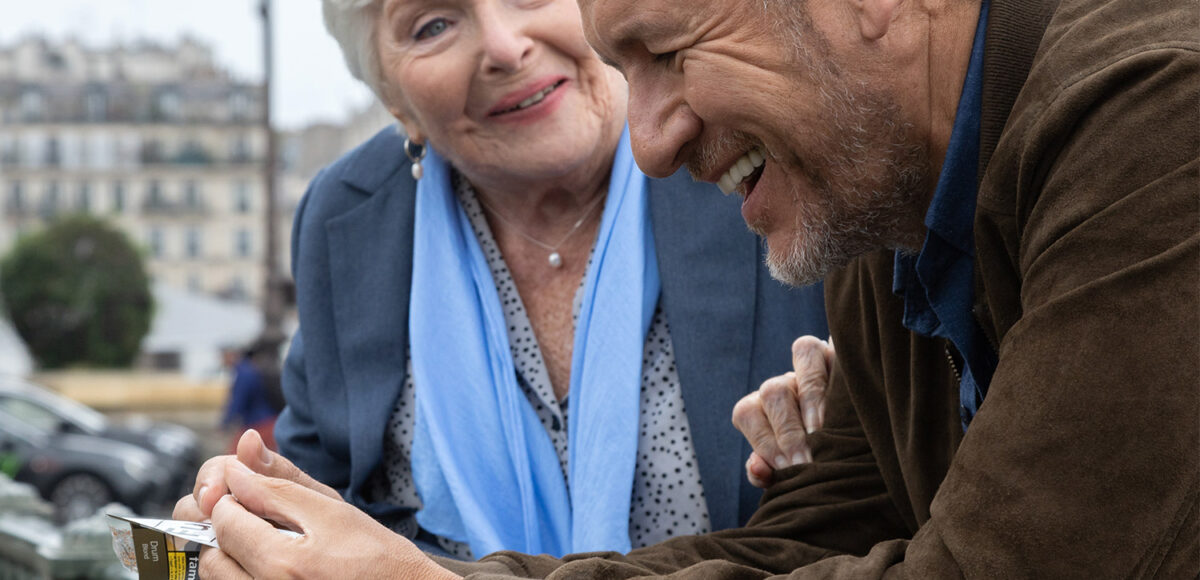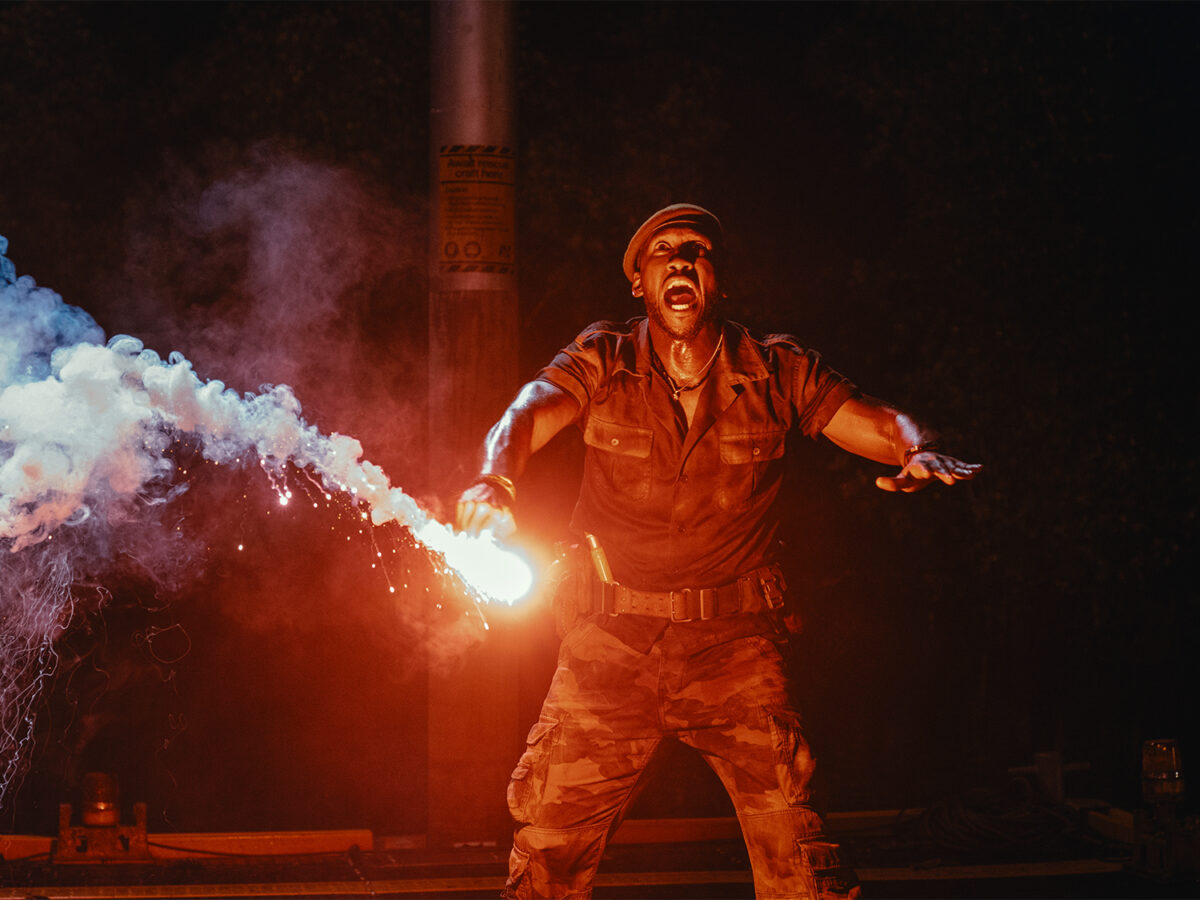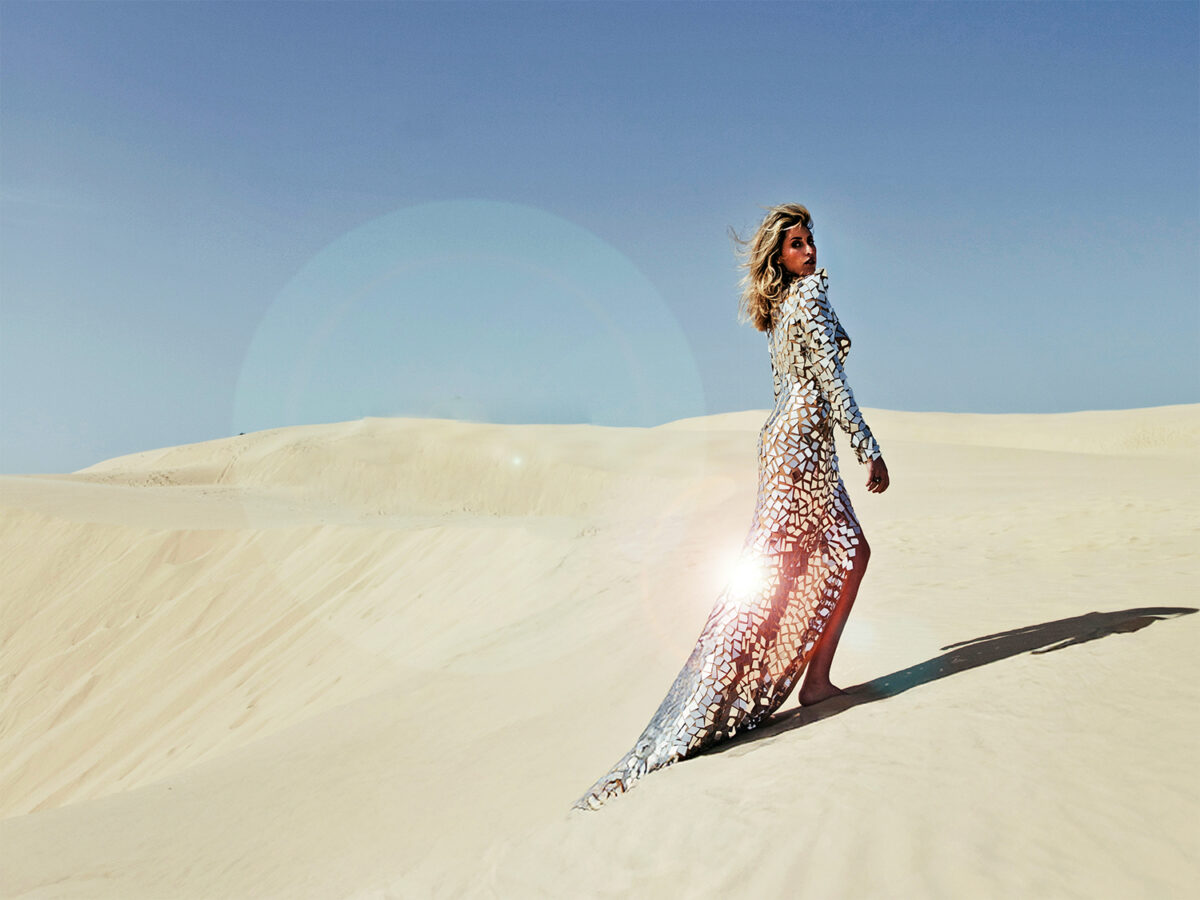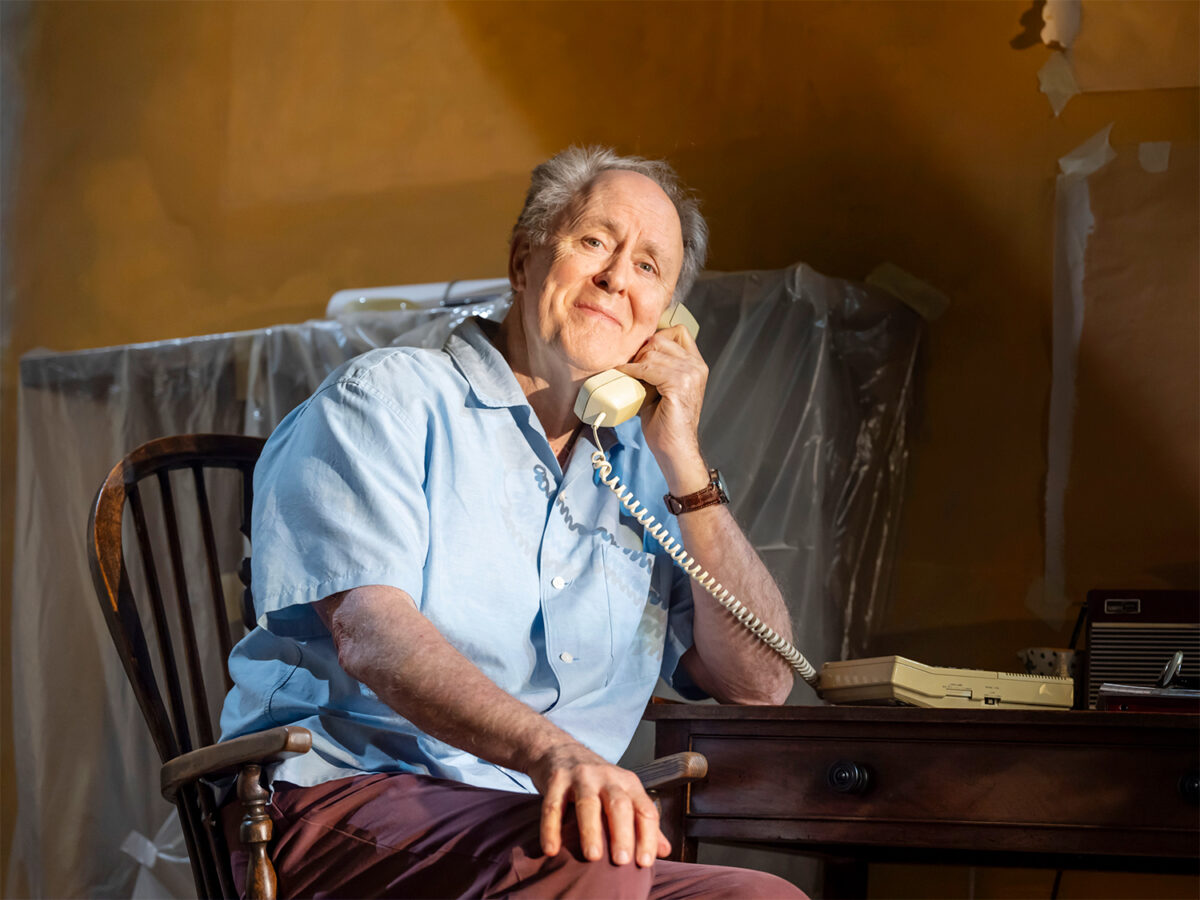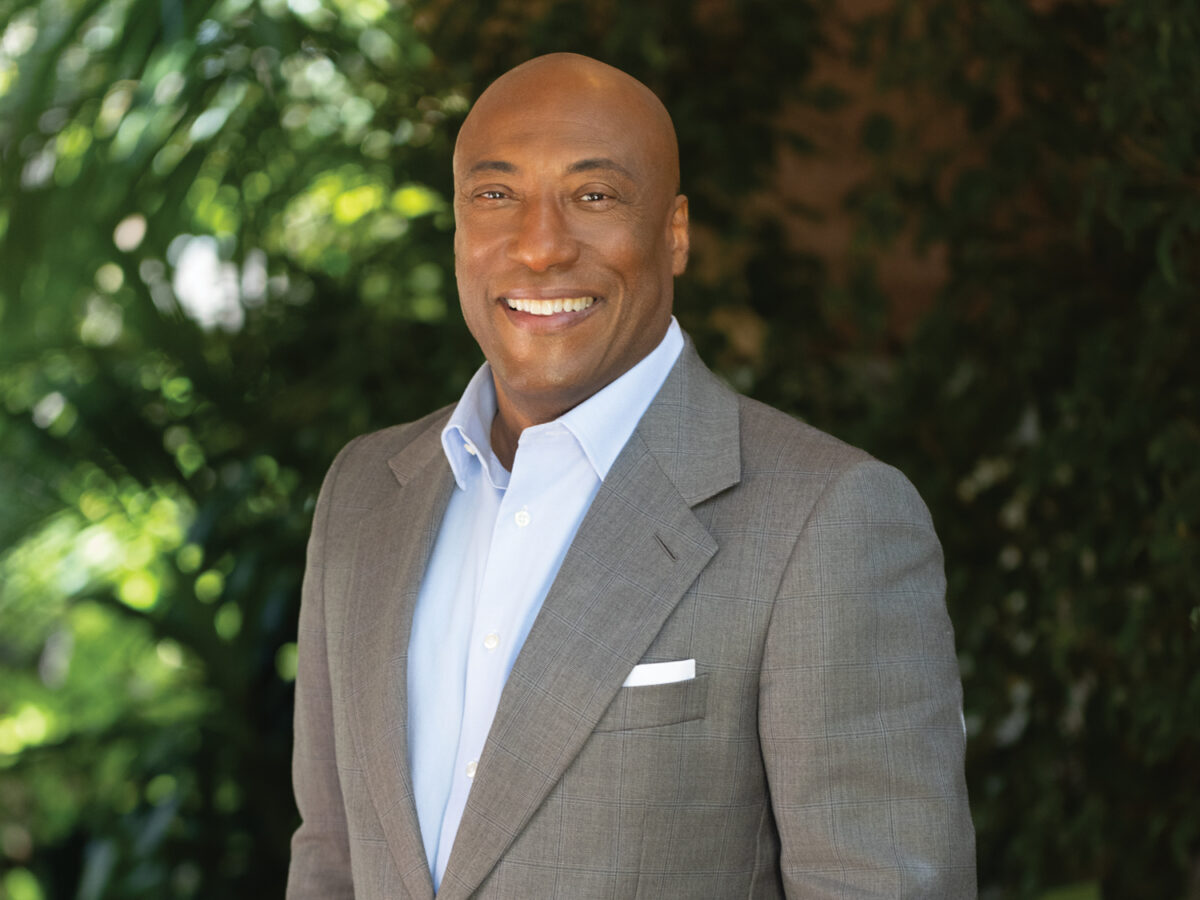“Driving Madeleine” is a gift to all of us, old and young. Director Christian Carion, working from his adaptation of a script by Cyril Gely, has shone a light on the value of living a life, both troubled and indomitable, and sharing that vision.
Madeleine Keller, 92, has called for a taxi, a ride that will revisit her journey through Paris. It is Charles, morose, tense, suspicious, who answers that call. His life is a shambles, his romantic relationship is on the brink, and he is in debt so deep he risks losing everything. Although the trip will be a relatively lucrative one for him, across Paris, he’s still annoyed at the distance, the traffic and his passenger. Madeleine, with her preternaturally sunny disposition, is quite talkative. Her destination? The assisted care facility where she will play out the rest of her days after a fall at home made it necessary to give up her independence. She’s in no hurry to get there and asks Charles to make a detour. She’d like to visit the area where she grew up. Ironically, so did he. They marvel at the changes in the neighborhood but don’t linger. Still, it’s Madeleine who does all the talking.
“Do you remember your first kiss?” she asks. Charles, on edge and in no mood to reminisce, says no. Not to be deterred, Madeleine describes hers as if it occurred yesterday. She was almost 17 and the allies had just liberated Paris. GIs were everywhere. It was at a USO dance that she met Matt. Handsome, considerate, seductive, his lips tasted like honey. They had an intense, romantic relationship several weeks before he shipped out, leaving her forever but with a “present.” That present was her beloved son Mathieu. Even Charles can’t ignore how vivid and warm her memory is. He, on the other hand, has no memories. His life is cold and full of worry.
Undeterred, Madeleine requests another stop, a less happy one; the apartment she shared with her husband. Charles, whose glacial demeanor has started to thaw, asks what his kisses tasted like. Tight-lipped, Madeleine delays before saying they tasted like nothing. It was a sensation she would forever block out as she begins to recount the most difficult part of her life in flashback scenes.
Horrified by her story, Charles is unable to understand how such things could have happened. “It was,” she explains, “the 50s.” Women had only just been given the right to vote but could not make any financial decisions, open bank accounts or work without their husband’s permission. Divorce was unthinkable and domestic violence was not recognized as an issue. Charles’ heart slowly begins to melt. Peppering him with questions, he starts to reveal parts of himself and his troubles, anxieties he’s never shared with anyone.
Soon, at her request, he drives to another part of Paris and another memory. He begins, finally, to understand that this is her last hurrah. She is going somewhere from which she may not return and he becomes determined to ease her transition. She has entered his psyche and he sees her for the force she is. What she has gone through in life was unthinkable and yet, despite the hardship, she came through with the will to make her life and everyone’s around her a better place. His problems, enormous to him, don’t measure up to what she’s been through. One of her gifts to him is perspective.
That Madeleine shares her indomitable spirit is her present to all of us. And Carion knows just how to tell her story so that we are enveloped in the bonding of Charles and Madeleine and the understanding that sometimes the end is just a beginning. All centered in Paris, truly the city of lights, it is, remarkably, shot in a car, moving through the various neighborhoods. Certainly we get shots of Notre Dame under construction, the Seine, the Opera, Place Vendome, but this isn’t about them. What we see are the working neighborhoods, the corner cafes, the glorious boulevards unknown to tourists but holding adventure and vibrant theaters, both old and new.
Cinematographer Pierre Cottereau employed a cutting edge technique to make it look as though Charles and Madeleine were driving through Paris in real time. Most of their scenes were filmed in a car, but instead of the car moving through traffic, a platform truck carrying multiple high definition cameras traversed their route through Paris and transmitted those scenes, shot at different angles, back to screens that surrounded the cab allowing the actors to react to the scenery passing by. Paris, as always, is an important character in this movie.
As transformational as the camera technique was, it’s still a movie about relationships and character growth. Alice Isaaz plays the young Madeleine in flashback. She is engaging, sympathetic and relatable. Jérémie Laheurte as her husband Ray is a caged animal who has no place in her world, taking out his frustration and his sense of emasculation with his fists. He is a true villain but his performance shows the nuance of ignorance.
Line Renaud, a legendary French singer/actress, was the perfect choice to play Madeleine. Her eyes still sparkle, her voice is strong yet tremulous, she inhabits this character whose great gift is her realization that she lived the life she chose and has few regrets. Renaud has an inherent warmth that dominates the screen and her rapport with her co-star is enhanced by her personal relationship with him. They have acted together before and they bring their friendship into their roles. Dany Boon as Charles is a revelation. Known for his comedic writing and acting, his dramatic acting is fully nuanced, touching and intense without pathos. Most remarkable is the character development shown as Boon finds the depth in this hurt, restrained common man drowning in self-pity who finds a sentimental core.
“Driving Madeleine” earns every laugh and every tear. It is sincere and emotional without being maudlin, keeping your attention rapt as Madeleine’s story plays out. There are no false moments. This is a film to enjoy, reflect on, and watch again.
In French with English subtitles.
Now playing at the Landmark Pasadena and Sunset Theaters.



